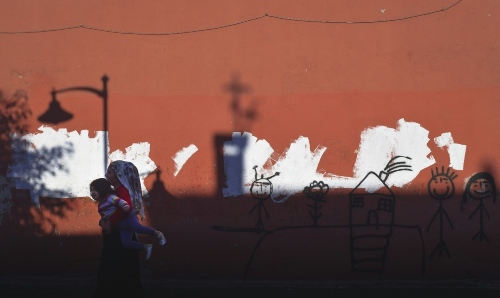Managing Syrian refugees after the Turkish earthquake
This research project, scheduled to run from 2024 to 2026, explores the dynamic evolution of Turkey’s migration acquis in response to the Syrian refugee crisis, focusing on the perspectives of key migration and disaster management officials.
With the expertise of migration specialists from the Presidency of Migration Management (GİB) and disaster response officers from the Disaster and Emergency Management Authority (AFAD), the study analyses both the strategic development of Turkey’s migration policies and their practical adaptations in the aftermath of the February 2023 earthquakes.

In the first phase of the project, we will trace the historical development of Turkey's migration acquis as it shifted to accommodate the unprecedented influx of refugees. This includes an examination of how policy frameworks evolved in response to international pressures, security concerns, and domestic socio-political factors, transforming Turkey into a host for one of the world’s largest refugee populations.
Turkey’s approach, incorporating principles of voluntary return and safe zones in Syria, aligns with a global migration regime that increasingly prioritises containment over long-term resettlement. Migration experts from the GİB offer insights into the policy decisions made at various stages of this evolution, revealing how Turkey navigated complex international expectations and local pressures to forge a flexible, yet occasionally contentious, migration policy.
In the second phase we will investigate the implementation and adaptation of these policies within the post-disaster environment, with a focus on practical insights from GIB experts and AFAD officers. Following the earthquakes, these policies encountered new challenges as AFAD’s role expanded to address the dual needs of disaster relief and coordination of resettlement efforts for refugees impacted by the disaster.
This study captures how GIB migration experts and AFAD officers adapted migration policies in real-time, balancing the needs of local communities with those of Syrian refugees. Through their experiences, the research reveals how policies designed for stable contexts are recalibrated amid the pressures of a humanitarian crisis, highlighting the critical role of frontline implementers in managing both immediate relief and longer-term migration challenges.
Ultimately, the project presents a comprehensive analysis of Turkey’s migration policy as both a strategic framework and a field-level practice shaped by real-world crises, shedding light on the complexities and adaptive strategies that define migration governance in times of disaster.
Led by:
View an introductory webinar for the project:
